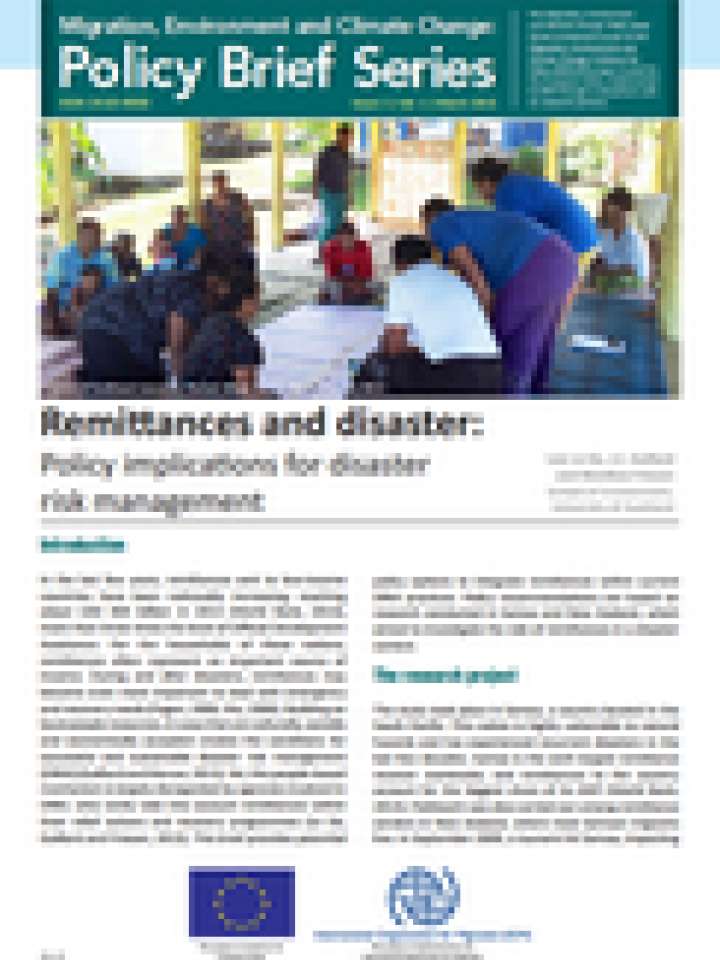Remittances and disaster: policy implications for disaster risk management
This brief provides potential policy options, drawing on a research project based in Samoa and New Zealand, to integrate remittances within current disaster risk management practices. The brief identifies the need to take into account remittance flows when designing and implementing post-disaster interventions as well as some policy measures adopted during disasters that occurred in Samoa and in other countries, and which could be replicated in other comparable settings.
The brief calls for a better understanding of the role and impacts of remittances for both receivers and senders, and also calls for greater collaboration between governments, aid agencies and the private sector. Remittances sent to low-income countries have been noticeably increasing, and for the households of these countries, remittances often represent an important source of income. During and after disasters, remittances may become even more important to deal with emergency and recovery needs.
Environment Migration Portal, Migration, Environment and Climate Change: Policy Brief Series, Issue 2, Vol. 1, March 2015. This document is part of the "Migration, Environment and Climate Change: Policy Brief Series" of the International Organization for Migration.
Explore further

